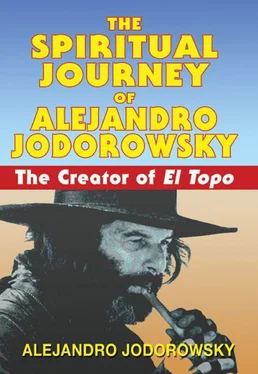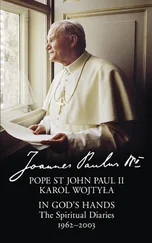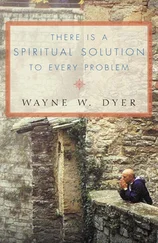( Essays on Zen Buddhism , D. T. SUZUKI)
In koan 44, known as Pa-tsiao’s stick, the master says to his monks: “If you have a stick, I will give you the stick. If you don’t have a stick, I will take it away from you.”. . Let us analyze this koan in the light of the Donald Duck story. He first receives a “mystical call” to put out a fire. Yet in receiving the call, Donald is blinded by his pride. He is already congratulating himself on the honors he will receive: a position of great responsibility and bronze medals to gratify his narcissistic self (though if they were of real value, they would be gold, not bronze). Furthermore, he intends to store them in a trunk, a symbol of his closed ego. His nephews, on the contrary, represent collective wisdom and the priority of social good over selfish good. They are both three and one. They pronounce one sentence, dividing it into three parts: 1) The alarm has rung, 2). . and our uncle must be, 3). . asleep. These are the nephews who diadain egoistic thought. They awaken when the alarm sounds and set about extinguishing the fire selflessly, expecting no reward and thinking only of the task at hand. Finally, it is they who try to help the Other. They have a stick, and this is why they are given the best fire truck. Uncle Donald does not have a stick, which is why even what he has is taken away from him little by little. .
In koan 42, a nun is deep in concentration beside the Buddha. The other disciples complain because she alone has the honor of sitting next to the master. The Buddha tells them to bring her out of her meditation, but they are unable to do so. The Buddha calls out: “Ignorance!” Then he approaches the woman, snaps his fingers, and she immediately wakes up.
The content is clear: Neither knowledge nor discussion nor study can give satori. Only mind which is not conscious of a separate self can trigger it.
. . Donald Duck, a modern Prometheus, receives the call to extinguish his petty mental fire, then he discovers some rockets and becomes submerged in the great Fire-Unconscious universe. It is clear that the abnormal excess of dualistic thought causes us to suffer. This is why the duck cries out when his house catches fire. He needs satori but is afraid of it. He loses his chance, and sadly, lugging his intellectual sack, he watches the new generation disappear in the distance. His pathetic consolation is to exclaim how lucky they are. He does not see that such luck is the result of constant inner work (the necessity of being responsive to all calls) and that it is because of their work that they have been given this blessing.
Poor Donald! Everything is taken away from him. His rigid concepts cause him to expect something without working to obtain it. And how to obtain it? For Donald, the path is shown in the story: He must clean his trunk, emptying it of all those bronze medals.
After I had finished reading the article to Ejo, my contented smile froze as he began to fan himself, muttering, “Like snow in a silver vase.” His tone left no doubt as to his meaning. In spite of their cleverness, my words were destined to vanish without a trace.
After a seemingly interminable silence, Ejo spoke in a very low voice: “The moment you open your mouth to speak ‘the truth,’ you betray yourself.” Blushing with shame, I understood. However accurate my Zen interpretation of the Donald Duck story might be, I rendered the teaching useless by such an attempt to explain it.
Ejo passed me the secret book. “Read the first koan of the third part. It is not for novices; it is only for those who aspire to become masters. When this and the forty-three other koans are received after three years of novitiate, the aspirant must confine himself to the monastery and practice for at least ten years. Only someone who has succeeded in becoming a Zen master has the right and the capacity to ask these koans of a new generation.
“That night, when Señor Molina came to your door and asked you that koan, not even knowing its correct form, and threatened to punch you violently in the mouth — the same place where he had done violence to himself, breaking all his teeth — he was giving a sign of inexcusable vanity, pride, stupidity, and unconsciousness. I should have seen this, but I was blinded by his childlike ambition and I ordained him as a monk. My real wish was for my own ‘fathers’ to congratulate me for helping the Dharma take root in Mexico. I deserve a hundred blows of the kyosaku. Please administer them to me.”
He gave me the stick and kneeled, bowing his head and back. I hesitated. He slapped the ground loudly with his palm. “One hundred!”
What else could I do? I knew it would be useless to try to persuade him to abandon this plan. It would make him only angrier — and if I refused, it would be a further insult and humiliation to him. I began to strike him with three rather soft blows.
“Harder!” he shouted.
So I continued striking him vigorously. After a while, a bitter sob of grief rose from my belly to my throat and finally emerged from my mouth, a long, serpentine wail of lamentation for both of us, for his childhood and mine, two children who had never been allowed to play with abandon, imprisoned inside ourselves by the adults around us, two islands who had lost hope of ever meeting another pair of kind and understanding eyes that would accept us just as we were, as innocent souls, with no strings of religious or social duty attached.
After the hundredth blow, I kneeled down beside him. I attempted to embrace him, but he would not allow it. Arising with great dignity, he handed me the book.
“Read aloud!”
“Zen master Kyogen *21said: ‘Suppose a man climbs a tree and holds onto a branch with his teeth. He hangs there without his feet touching the ground. From below, a monk questions him on why Bodhidharma, founder of Zen, came from the west. If the man does not answer, he will be shamed for eluding the question. But if he opens his mouth, he will fall and die. What should he do?’
“A monk named Koto replied: ‘Once the man is up high, hanging from the branch, he cannot reply to any question. If the monk had something to ask him, he should have done it before the man climbed the tree.’ Hearing this, Kyogen burst out laughing. Later, Master Setcho commented: ‘It is easy to answer while hanging from a tree. It is more difficult to answer while standing under the tree. Therefore, I must hang from a branch. Come, ask me a question.’”
“First, the classic responses,” Ejo said. “There is one for when the man is hanging from a tree and another for when he is on the ground. In the tree: The disciple places a finger between his teeth, imitating a branch, wriggles his body, and grunts ‘Ooh, ooh,’ imitating someone trying to answer without being able to. Under the tree: The disciple imitates falling from the branch and lands on his bottom. ‘Ouch, that hurts!’ he says. Now answer me without opening your mouth!” Ejo said.
I offered the classic response: “Whether or not I can reply, you try first!” And I covered his mouth with my hand.
He pushed it away. “You see? Whether or not you speak, your brain is stuffed with words. Can you climb the tree and hang by your teeth from a branch? The monk Koto saw the smoke but not the fire. Human beings give more importance to knowing in advance how to answer a question with grand words that reveal the truth of the teaching than they do to the ferocious effort between life and death that they must make to realize their true nature of emptiness. Master Setcho understood this, demonstrating clearly the difference between thinking and experiencing. Under the tree, man seeks the Buddha’s meaning without understanding that this Buddha he talks about is not an external being, but a level of consciousness that must be found beyond concepts. Being suspended from the tree means putting an end to intellectual discourse, to the search for ideals and goals. It means entering into a vital process, an agonizing struggle like that of a larva twisting itself to become a butterfly.”
Читать дальше












